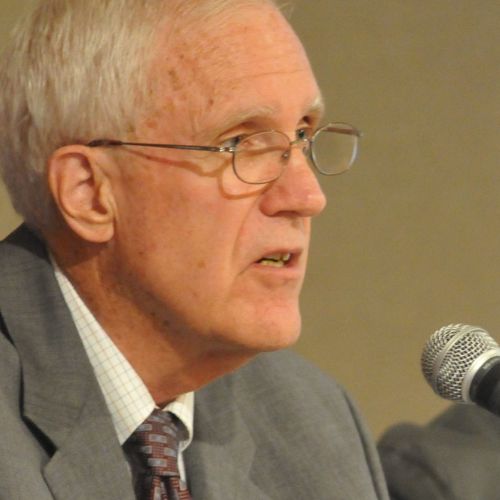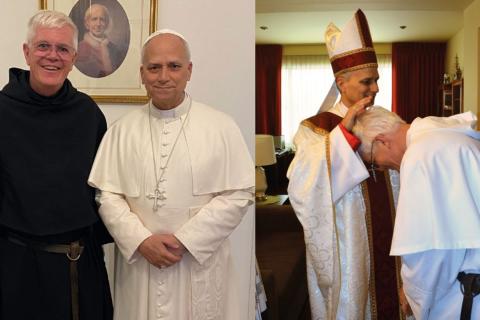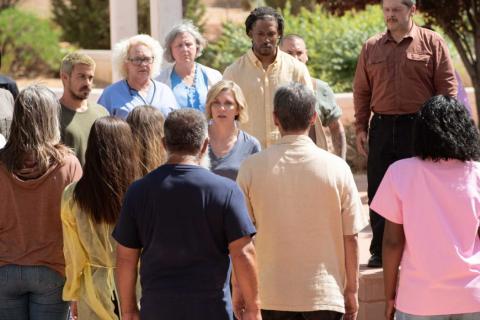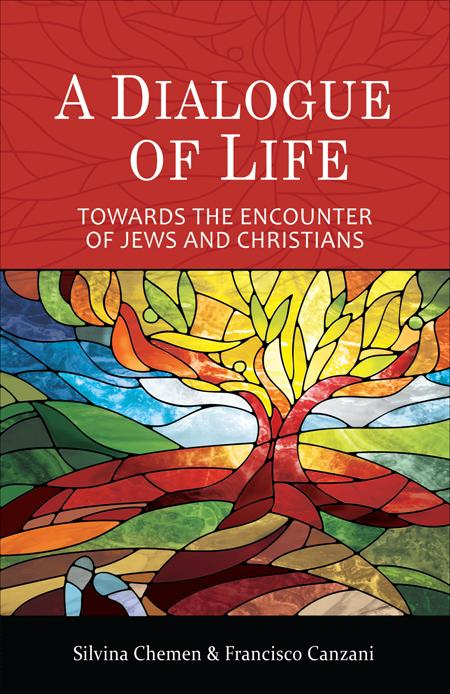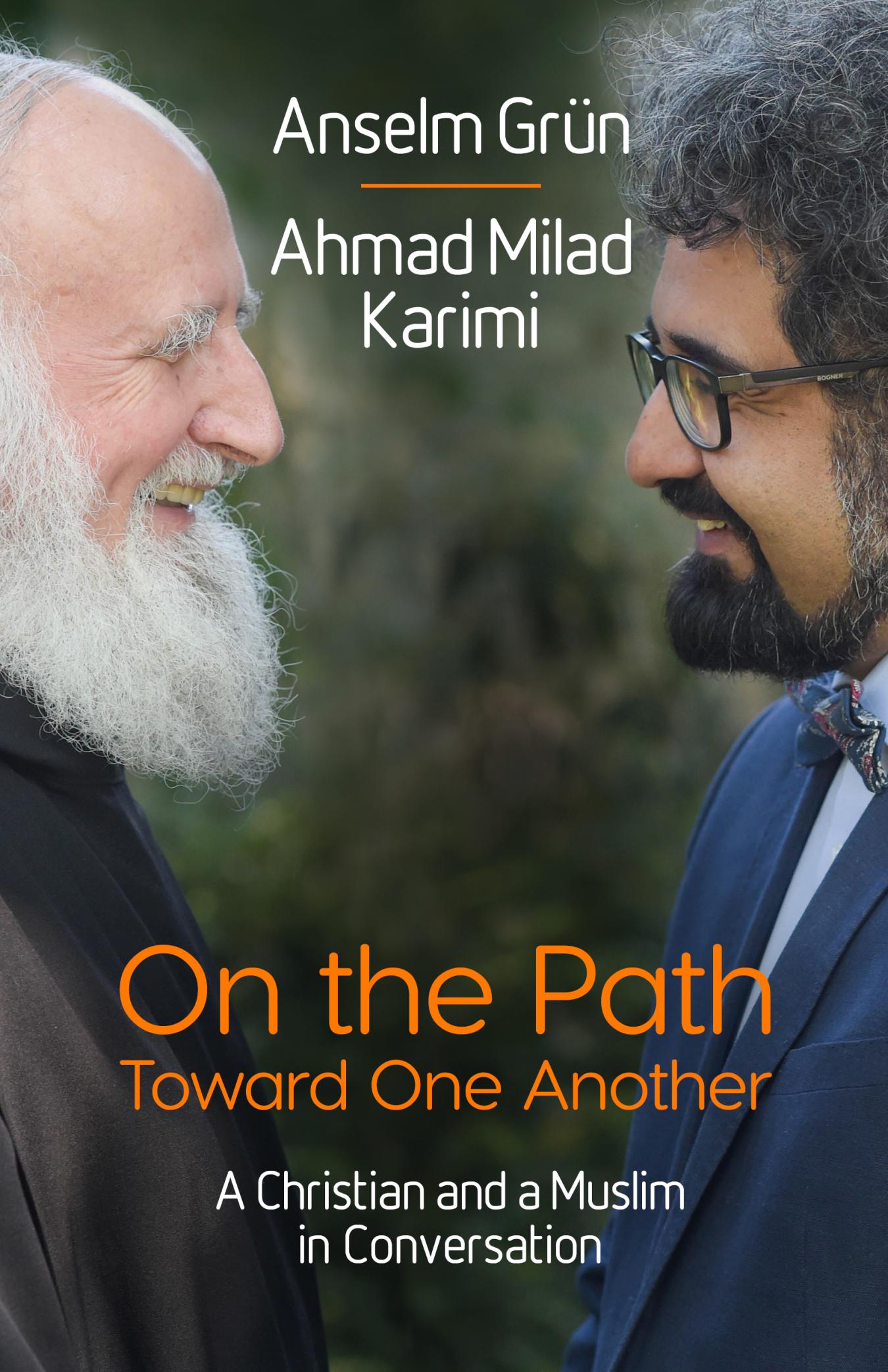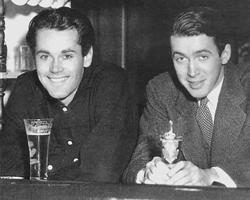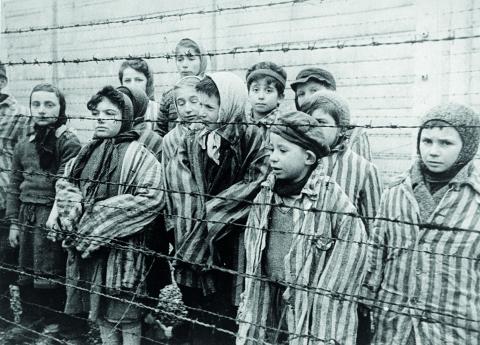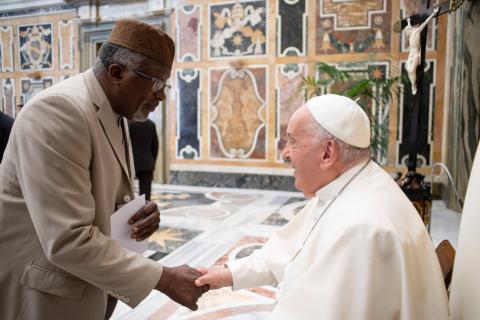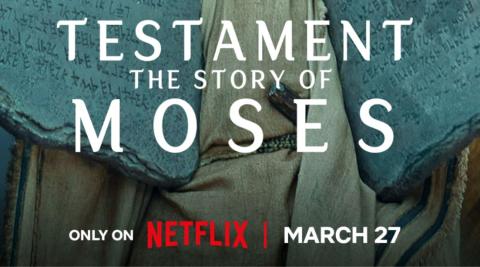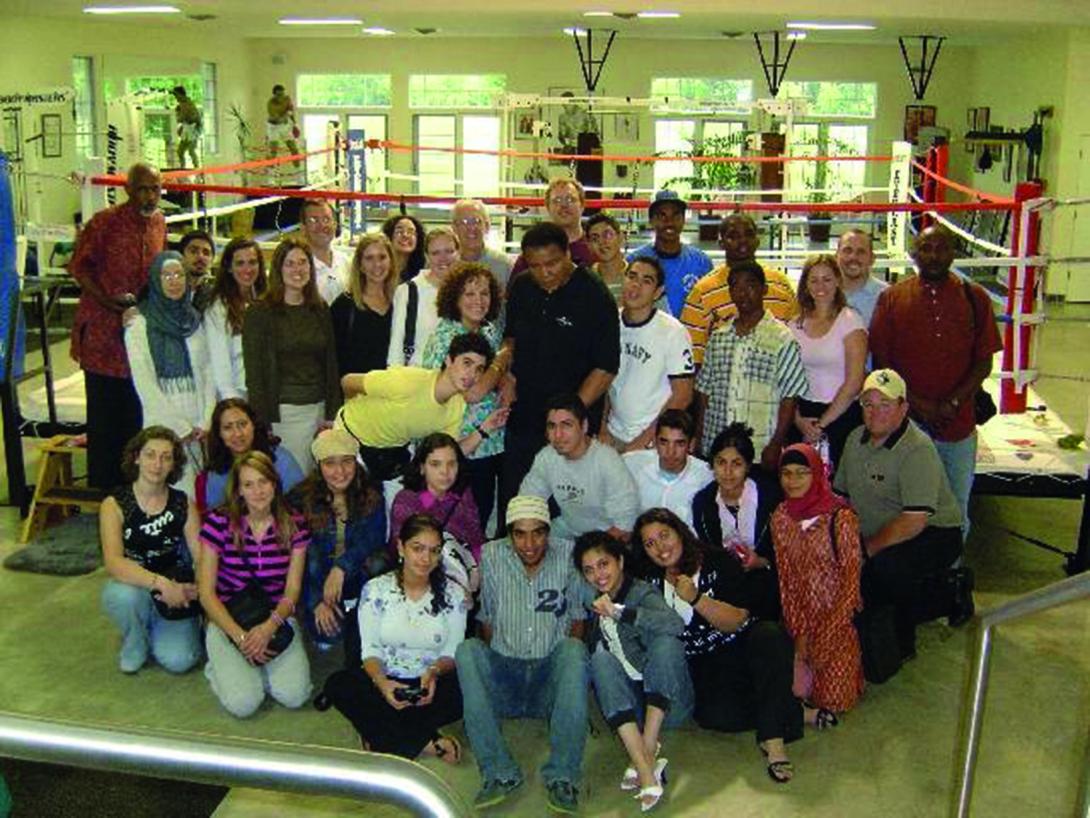
Don Mitchell with his students at his training center in Michigan. Photo courtesy of Don Mitchell.
I have had a close friendship with members of the African American Muslim community for many years. It all started in 1997, when Chiara Lubich gave a talk at the Malcolm Shabazz Mosque in Harlem and met with Imam W. D. Mohammed, leader of the African American Muslim Society in the U.S. at the time. Since then, the friendship and collaboration between Focolare and this African American Muslim community has been ongoing.
I also first met with His Holiness the Dalai Lama in 1981, and we have remained friends down to today.
In 2003, I read in our newspaper that Muhammad Ali and His Holiness were going to give talks at the Tibetan Cultural Center in Bloomington, Indiana. Given my fellowship with His Holiness and my fellowship with my African American Muslim brothers and sisters, I decided to attend.
I went to the Tibetan Cultural Center event with my son Paul. We were led to the VIP section, where we were soon joined by Imam W. D. Mohammed. I was surprised to see him and introduced myself to him as a Focolare member. He responded with a joy in his eyes that reflected his deep spirit. We had a very pleasant conversation, in which I felt a deep fellowship with him.
As the event began, the Dalai Lama and Muhammad Ali walked from the Tibetan Buddhist Temple arm-in-arm. I remember the first thing His Holiness said to Muhammad Ali: “I have watched your fights. They were very impressive. I am afraid that I would be knocked out right away.” They both laughed.
After the event, Paul and I were invited to a meeting with His Holiness in the temple. As we walked to the door of the temple, we saw Muhammad Ali waiting for a car. Paul became excited and yelled, “Ali! Ali!” His bodyguard kept us at a distance.
But then we heard Ali calling us and the bodyguard let us go up to him. He embraced Paul and then shook my hand. As Paul and I entered the temple, I had a feeling that the ongoing friendship between Focolare and the Society had enabled me to meet with both Imam W. D. Mohammed and Muhammad Ali on that special day.
The second and last time I met with Ali was during the summer of 2016. I was hosting a Summer Institute at Purdue for Muslim students from the West Bank, Tunisia, Egypt, Lebanon, Bahrain, Jordan and Israel.
By that time, I had met and became friends with Imam Muhammad Siddeeq. He was a member of the original Nation of Islam led by Louis Farrakhan. In 1975, Muhammad Siddeeq and his family became faithful followers and supporters of W. D. Mohammed, who guided the Nation of Islam from an American-based nationalistic practice of Islam to the universal practice.
Imam Siddeeq was in Indianapolis to help develop the local community, as well as to support Muslim athletes. He became the spiritual adviser of boxing champion Mike Tyson, beginning with Tyson’s imprisonment in Indiana.
On his list of athletes was Muhammad Ali. So I asked if he could arrange for our Muslim students to meet with Ali. He agreed.
Imam Siddeeq, the students and myself made a special field trip to the home and training center of Muhammad Ali in Michigan. As we entered the training center, the students noticed the word “GOAT” on the wall and asked what it meant. They were told that it meant “greatest of all time.” In the middle of the training center was a boxing ring. The students were led by a guide around the center until Muhammad Ali entered.
When Ali entered, he greeted each of us and had his picture taken with each one of the students. Then all the students, along with Imam Siddeeq, myself and the bus driver, gathered in a semicircle with Ali for a group picture. Then Ali sat on a bench next to the boxing ring and had me sit next to him.
Imam Siddeeq opened a large box and began handing Ali pairs of small boxing gloves. Ali signed each individual glove and handed them to each of students.
At one point, Imam Siddeeq asked Ali if he needed to stop writing for a while given his condition. Ali shook his head “no.”
It was at that moment sitting next to him as he continued to sign the gloves that I felt a deep spiritual bond with him that I still cannot explain.


